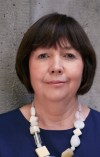Presenting venues will no longer need a local authority licence to put on a live music gig for an audience of 200 or fewer. Deborah Annetts celebrates the culmination of a campaign against bureaucracy

Live music in pubs, schools, village halls and numerous other small venues will once again be able to flourish and the time-wasting and extra cost of applying for a licence will disappear now that the Live Music Bill has completed its journey through Parliament and is expected to become law later in the spring. This is no small achievement for the Incorporated Society of Musicians (ISM), which has campaigned wholeheartedly from the very first because of our commitment to setting the music profession free to deliver music.
The ISM represents and protects the rights of music professionals in the UK and as part of our work we campaign on the important issues facing musicians across all genres. That the Live Music Bill 2010 has been approved by Parliament and is to become the Live Music Act 2012 is of great significance to the membership and wider music industry. Fewer than one in 20 private members bills made it through Parliament last session, so supporting this through onto the statute books is a triumph: it’s a bit of the law specifically designed for music professionals and venues to enable live music to flourish. Our independence – both financial and political – means that we have been able to campaign effectively against this restriction on behalf of the music industry whichever Government has been in power. And we owe a debt of gratitude to Lord Clement-Jones and Don Foster MP for piloting this Bill through Parliament.
Music professionals and venues have been tied down by unfair legislation since 2003. The Licensing Act effectively ranked music as licensable alongside alcohol. This meant that a landlord of a small pub could face a big fine and imprisonment for letting a customer play a piano without a licence. We saw one Northamptonshire school in 2009 cancel its concert at the last minute after the head teacher was visited by a licensing official from his local council and a police officer who told him that he could face a £20,000 fine and possible imprisonment if it went ahead because he didn’t have the required licence. And then there was Kettering Borough Council, which challenged HMV for allowing Faryl Smith to sing in their shop; and an Oxfam bookshop holding a poetry reading with some music, which was told to apply for permission...
The Live Music Act is important to all musicians, whether rock, jazz or a string quartet, and across a wide range of settings, from pubs to village halls and hospitals: many musicians get their first opportunity to play in this small venue context. Lord Clement-Jones’ summed it up when he introduced his Bill to the House of Lords: “This Bill – backed by the ISM and other music organisations – will ensure that live music can take place in small venues and create the ‘explosion’ of performances we were promised in 2003. It will be of major benefit to Britain’s talented musicians and the many millions of people who enjoy live music.”
And our campaigning will potentially bring yet more good news to musicians. For some venues, 200 is too small an audience and the Live Music Act will not address their situation. Given that even football matches don’t need a licence until they have over 5,000 spectators, it is clear that music is currently being treated differently and more harshly. Well, it seems that the Government has been listening to the ISM and others and has now started to consult on relaxing regulation for the entertainment of up to 5,000 people. This means that in future, for venues that are not otherwise licensed (e.g. for selling alcohol), there may be no need for a licence to put on a music event.
TW @ISM_music
W www.ism.org
This year’s ISM conference will take place on 12/13 April at LSO St Luke’s and Guildhall School of Music & Drama, featuring a performances including Miles Davis’ Sketches of Spain, the Benyounes Quartet with composer Philip Cashian and a singing masterclass with Sarah Connolly.




